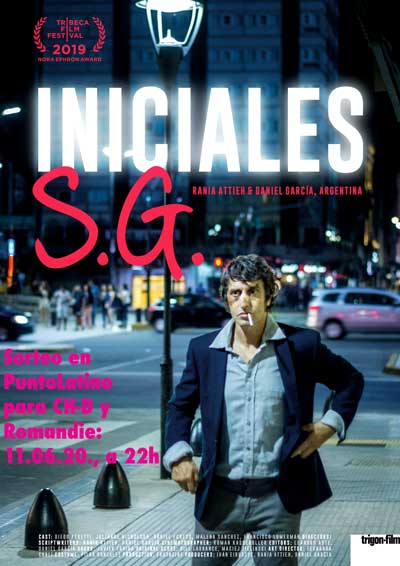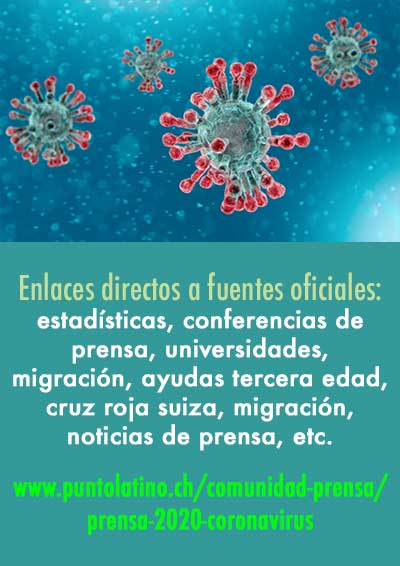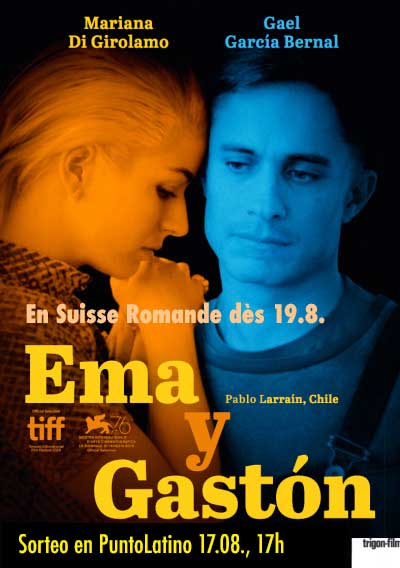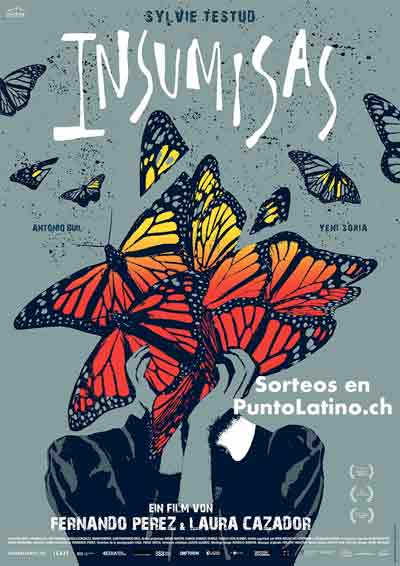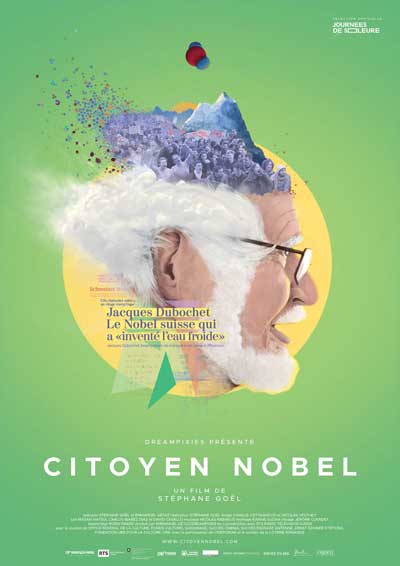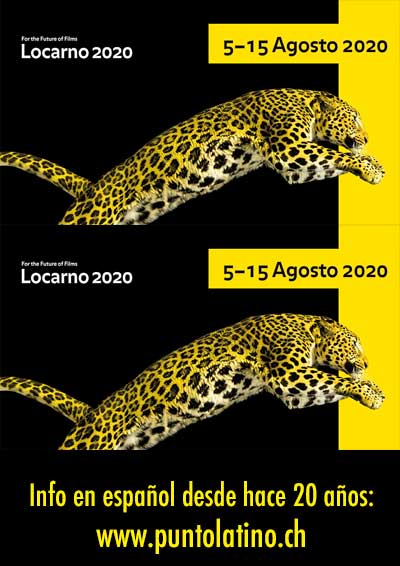07.05.12. Christine Lagarde (FMI) en la Universidad de Zúrich
| TEMA EUROPA | UNIVERSIDADES | ZURICH |
Christine Lagarde, Direktorin des Internationalen Währungsfonds (IWF)
— Montag, 7. Mai, 18:15 Uhr, Universität Zürich (Rämistrasse 71), ZURICH —Das Thema wird aus aktuellem Anlass später bekanntgegeben.
Kurzbiographie
Christine Lagarde wurde 1956 in Paris geboren. Nach dem Abitur in Le Havre studierte sie an der Holton-Arms School in Bethesda, Maryland und absolvierte nach ihrer Rückkehr nach Frankreich ein Studium im Fach Sozialrecht. Am Institut d’études politiques d’Aix-en-Provence machte sie einen MA in Englisch, einen Master of Business Law und ein Diplom in Arbeitsrecht an der Universität Paris X-Nanterre. 1981 trat Lagarde als Rechtsanwältin in das Pariser Büro der Kanzlei Baker & McKenzie ein. Von 1999 bis 2004 war sie Präsidentin der Geschäftsführung und ab 2004 Vorsitzende des Global Strategy Committee von Baker & McKenzie in Chicago. Von Juni 2005 bis Mai 2007 war Christine Lagarde beigeordnete Ministerin für Aussenhandel und wurde im Juni 2007 die erste weibliche Ministerin für Wirtschaft und Finanzen eines G7-Landes. Seit 2000 ist sie Mitglied der französischen Ehrenlegion und ist seit Juli 2011 geschäftsführende Direktorin des IWF. Christine Lagarde ist Mutter von zwei Söhnen und ehemaliges Mitglied der französischen Nationalmannschaft der Synchronschwimmer.
Reseñas en español de José Parra Moyano y Daniel Ortiz Grassi serán publicadas en PuntoLatino.ch

|

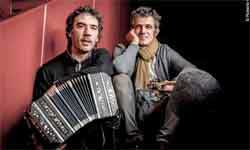



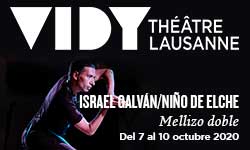
















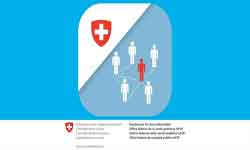
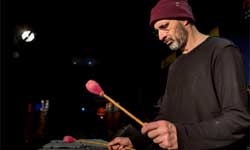





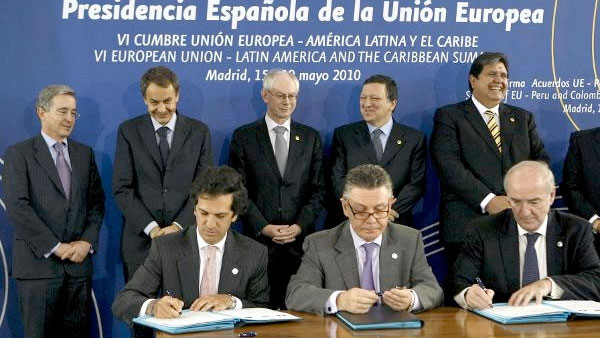
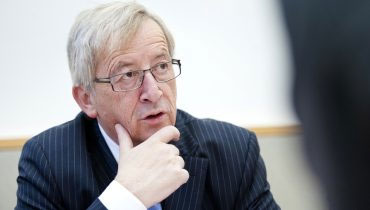 “The Euro is the peace-tool of the current european generation” has Jean-Claude Juncker said last tuesday 25th of October at the University of Zurich (UZH). The President of the Eurogroup and Prime Minister of Luxemburg has been able to attempt the date he arranged months ago with the students of the UZH, even he is now taking, together with european prime ministers and world leaders, the decissions that will impregnate the economic future of the states that form the EU and also of the statets that sourround it. (Photo: NZZ/Christian Beutler, 25.10.11., «Chef der Euro-Gruppe skizziert in Zürich mögliche Lösung der Schuldenkrise»).
“The Euro is the peace-tool of the current european generation” has Jean-Claude Juncker said last tuesday 25th of October at the University of Zurich (UZH). The President of the Eurogroup and Prime Minister of Luxemburg has been able to attempt the date he arranged months ago with the students of the UZH, even he is now taking, together with european prime ministers and world leaders, the decissions that will impregnate the economic future of the states that form the EU and also of the statets that sourround it. (Photo: NZZ/Christian Beutler, 25.10.11., «Chef der Euro-Gruppe skizziert in Zürich mögliche Lösung der Schuldenkrise»).  José Parra Moyano, es estudiante de economía de la Universidad de Zúrich y redactor de PuntoLatino. Escribe sobre economía, literatura, cine, arte y cultura en general. Le interesa también escribir sobre temas suizos y es miembro del comité de la Junta Joven de la Cámara de Comercio Latinoamericana en Suiza y presidente de la Asociación Latina de estudiantes de la UZH/ETH (LSVZH). José Parra-Moyano es responsable de la rúbrica UNIVERSIDADES, es coordinador del grupo ZH y es uno de los cuatro coordinadores del Grupo ECONOMIA de PuntoLatino. En su vida profesinal José se desempeña como Asistente en Matemáticas en la UZH.
José Parra Moyano, es estudiante de economía de la Universidad de Zúrich y redactor de PuntoLatino. Escribe sobre economía, literatura, cine, arte y cultura en general. Le interesa también escribir sobre temas suizos y es miembro del comité de la Junta Joven de la Cámara de Comercio Latinoamericana en Suiza y presidente de la Asociación Latina de estudiantes de la UZH/ETH (LSVZH). José Parra-Moyano es responsable de la rúbrica UNIVERSIDADES, es coordinador del grupo ZH y es uno de los cuatro coordinadores del Grupo ECONOMIA de PuntoLatino. En su vida profesinal José se desempeña como Asistente en Matemáticas en la UZH.



















